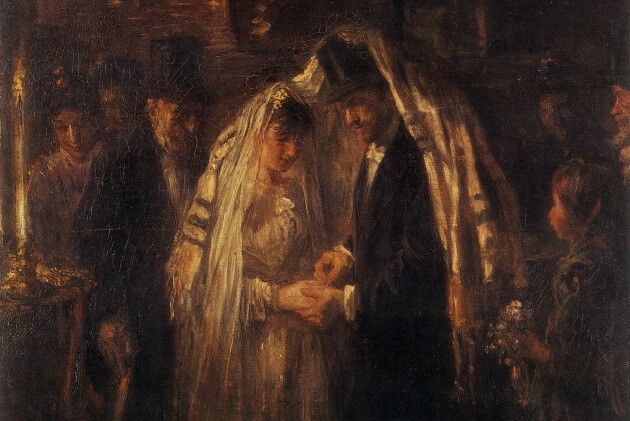
The Friday evening liturgical song Lechah Dodi compares the Sabbath to a bride: “Come my friend, toward the bride; let us greet the Sabbath.” What does this metaphor teach us?
A Taste of the World to Come
The Sabbath is a time of closeness to Torah and spiritual enlightenment. Through the light of our neshamah yeteirah, our special “Sabbath soul,” we are able to grasp that which was distant and concealed from us during the weekdays.
This special receptiveness to Torah on the Sabbath is similar to the feelings of a bride toward her new husband. The bride does not know her husband in a deep, intimate way, the way a wife married for many years does. Yet there is an excitement and tremendous joy in the bride’s love, which stems from the newness of the relationship.
The Talmud in Berachot 57b teaches that the Sabbath is a “taste of the World to Come.” One day a week we can ‘taste’ some of the holiness and knowledge that will fill the world in the future era, a time of pure and continual Sabbath.
Our weekly Sabbath does not have the depth of enlightenment that will grace the World to Come, but there is a delight of newness, like the excitement and elation of a young bride. This bridal joy is particularly appropriate at the very start of the Sabbath, as we celebrate to greet her with Lechah Dodi.
The future world will also be blessed with a newlywed joy, as it says, “God will rejoice over you as a groom rejoices over his bride.” This joy will be the product of an enlightenment that grows continually brighter, as the souls in the World to Come rejoice in their constant renewal and elevation.
(Silver from the Land of Israel, pp. 29-30. Adapted from Olat Re’iyah vol. II, p. 21)





